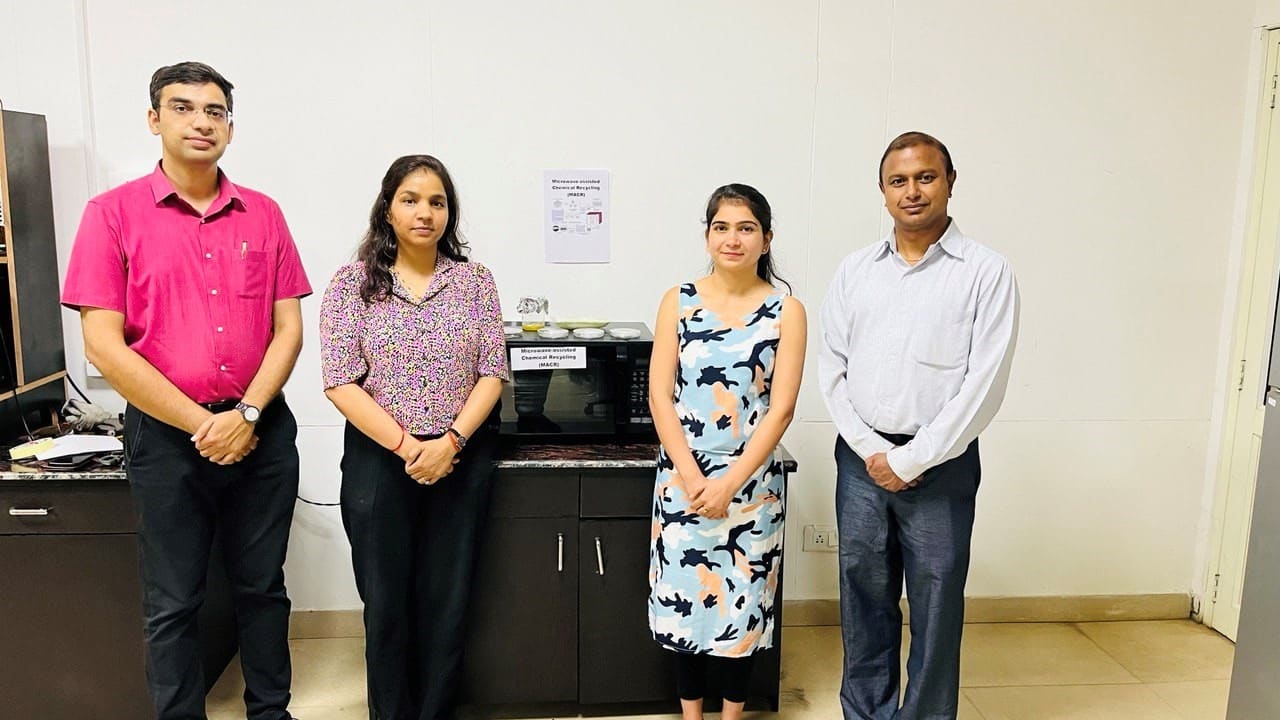IIT Mandi researchers use microwaves, eco-friendly chemicals to recycle glass fibres
Ishita Ranganath | October 6, 2022 | 01:13 PM IST | 2 mins read
IIT Mandi develops an eco-friendly method to recycle polymer composites used to make wind turbine blades as an alternative to current recycling methods.

NEW DELHI: Researchers at Indian Institute of Technology (IIT), Mandi develop a new method to recycle glass fibres from wind turbine blades. Using microwaves to recycle polymer composites with no harsh chemicals used in extraction is an eco-friendly method as opposed to the present methods of landfills and thermal based recycling.
The researchers have found a sustainable green-chemistry approach with a microwave-assisted chemical recycling (MACR) process to recycle glass fibre reinforced polymer (GFRP) found in wind turbines. The microwaves are used to help the chemical degradation of GFRP with eco-friendly chemicals such as acetic acid like vinegar and hydrogen peroxide that is used as a common disinfectant and antibiotic.
Through the method found by IIT Mandi researchers, the decomposition rates of epoxy are found to be up to 97.2 percent with recovery of glass fibres. After testing the glass fibres and comparing them to virgin fibres, it was seen that the recovered glass fibres retained almost 90 percent of its strength while being greater than 90 percent of other mechanical properties as compared to the virgin fibres.
The findings of this research by the institute is published in the Resources, Conservation and Recycling Journal, an international, peer-reviewed, journal on the recycling and reuse of material resources, including circular economy. This new recycling method was found in a research led by Sunny Zafar, assistant professor, School of Mechanical and Materials Engineering with Venkata Krishnan, associate professor, School of Chemical Sciences, IIT Mandi while being co-authored by their students Manjeet Rani and Priyanka Choudhary.
Also Read | IIT Mandi develops efficient method to study internal structure, functions of components of living cells
Current recycling methods
Currently, de-commissioned wind turbines composed of glass fibres in epoxy polymers are demolished at the end of their service or are either incinerated or sent to landfills. These current methods of recycling only add to the environmental cost and total pollution, therefore, are not eco-friendly in the long run. As of 2024, more that 200,000 tons of composite waste will be generated by wind turbines if the world continues to walk on the current path. Also, the increasing restrictions on landfill disposal and constantly changing costs of raw material will increase the cost of composites used in wind turbine blades.
While talking about the benefits of the research, Venkata Krishnan, associate professor, School of Chemical Sciences, IIT Mandi said, “The recycling method that we have developed can lead to a profound shift in recycling technologies, which can help the country move towards a circular economy for wind turbine blades.”
Follow us for the latest education news on colleges and universities, admission, courses, exams, research, education policies, study abroad and more..
To get in touch, write to us at news@careers360.com.